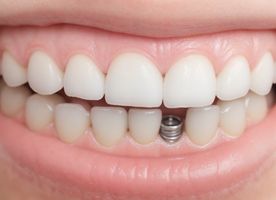Root Canal in Sao Paulo
Search and Compare the Best Clinics and Doctors at the Lowest Prices for Root Canal in Sao Paulo



































































































































































No Time?
Tell us what you're looking for and we'll reach out to the top clinics all at once
What does a Root Canal Procedure Involve?
With dental advances and the help of local anesthetics, a root canal is not painful. During the procedure, your dentist removes the pulp and the nerve, then the bacteria are removed and the inside of the tooth is cleaned. The final step is sealing the inside of the tooth with a filling or crown.
How Long Should I Stay in Sao Paulo for a Root Canal Procedure?
A root canal is usually performed as an outpatient procedure, meaning you can leave the medical facility straight after the procedure. However, you need to stay in Sao Paulo for around 2 to 7 days, especially if your tooth has several roots that require more than 1 appointment.
What's the Recovery Time for Root Canal Procedures in Sao Paulo?
Your tooth may feel sensitive for a few days after a root canal. Over-the-counter painkillers will help you with any discomfort. You can go back to work and return to your normal routine the next day or as soon as you arrive in your home country.
What sort of Aftercare is Required for Root Canal Procedures in Sao Paulo?
After a root canal, you should avoid biting on hard foods for a few days. You also need to keep your teeth clean, limit sugary food, and give up smoking to avoid further root canal treatment.
What's the Success Rate of Root Canal Procedures in Sao Paulo?
The root canal procedure is almost always successful, with over 95% success rate. Many teeth fixed with this procedure can last for 10 years to a lifetime. The side effect of a root canal is tooth sensitivity, but this will subside within a few days. The risks include the loss of the tooth or abscess development on the tooth, but this is very rare.
Are there Alternatives to Root Canal Procedures in Sao Paulo?
If you are apprehensive about a root canal, your alternatives include tooth extraction and replacing it with a dental implant, bridge, or partial denture to restore your chewing function and prevent adjacent teeth from shifting.
This information has been accurately sourced and verified by a medical professional for its accuracy, however, we strongly recommend you to consult with your doctor before pursuing medical procedures overseas.
















